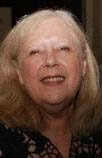I will write the evangel-poem of comrades and of love.Globally, we’re a celebrity-driven culture. In America, personalities like Anna Nicole Smith and Britney Spears get way more ink than is justified by their contributions. Other countries have their own celeb circuits. Otherwise, bin Ladin wouldn’t be a household name and Bollywood favorite Hrithik Roshan wouldn’t be in hot water after making harmless remarks about two other celebrities’ height.
--Walt Whitman
My favorite stories to write are what I call “heartland stories.” I like to write about the woman or man who lives a life outside the spotlight, but whose contribution is significant just the same. One such story at the moment belongs to Gilmer Hernandez. At my Covering Florida blog, there’s an update to the Family Security Matters story I wrote. Last night, as I did phone interviews for the update, a friend of Hernandez told me the national media isn’t picking his story up.
That’s a sad state of affairs. Issues over illegal immigration have both major political parties muddled, and many of us are muddled as well. For me, the issue has nothing to do with those legally entering the country. It has to do with the fact we’re fighting a war abroad to protect our freedoms, but a significant vulnerability, one that will surely be exploited at some point, exists close to home. It has to do with the fact that politicians and statesmen in many nations are doing nothing to improve the lives of their people, despite resources available to them.
Another cause that governs what I write is freedom of speech. I learned about the plight of blogger Kareem Amer, an Egyptian facing four years in prison for writing critical remarks about Islam and President Hosni Mubarak. There’s an update today at Free Kareem!. Amer’s lawyers are appealing his sentence but only in hopes of decreasing the length of it. Amer’s advocates have opened a store to raise money for his efforts.
A centerpiece in my new nonfiction book tells the story of a Florida man, Taylor Wells, convicted of felony murder in 1994. He was 18 years old, several weeks shy of graduating high school. In the real world, he harmed no one. In the legal world, he was judged guilty enough to receive a life sentence. Others who were instrumental in the 1993 crime have already been released from prison. The difference between these actors in the crime: their attorneys. Taylor’s public defender was at a distinct disadvantage for a number of reasons.
A goal I’ve had since beginning my career involves what I call “lastingness.” I like to write for publications that have been around for a long time, where my work will remain archived. Among these pubs are Christian Science Monitor and The Writer. And of course one reason I write poetry is the lasting quality. It has a good shelf life. I recently wrote a poem about a young homeless man I talk to when we go to our favorite restaurant. I asked myself who else would tell his story.
As a writer, I can sometimes strengthen the voice of the disenfranchised or the non-elite. I figure it’s a small way to contribute something to a world that has returned so much to me, despite a rough patch at the beginning.





